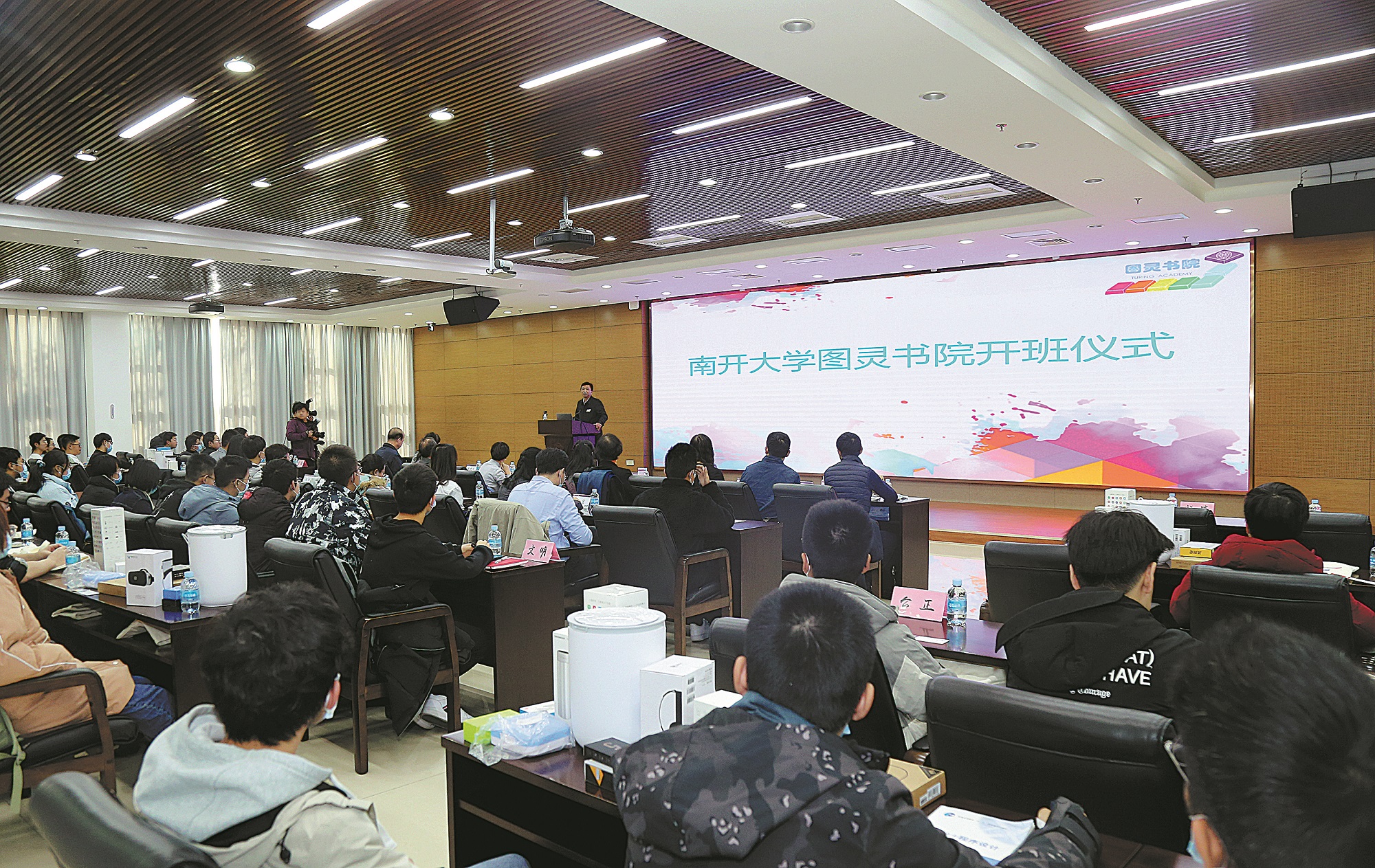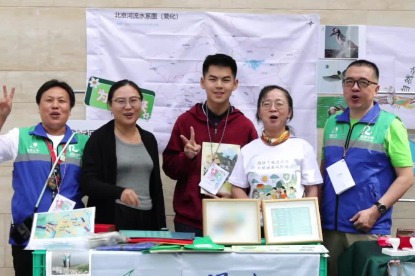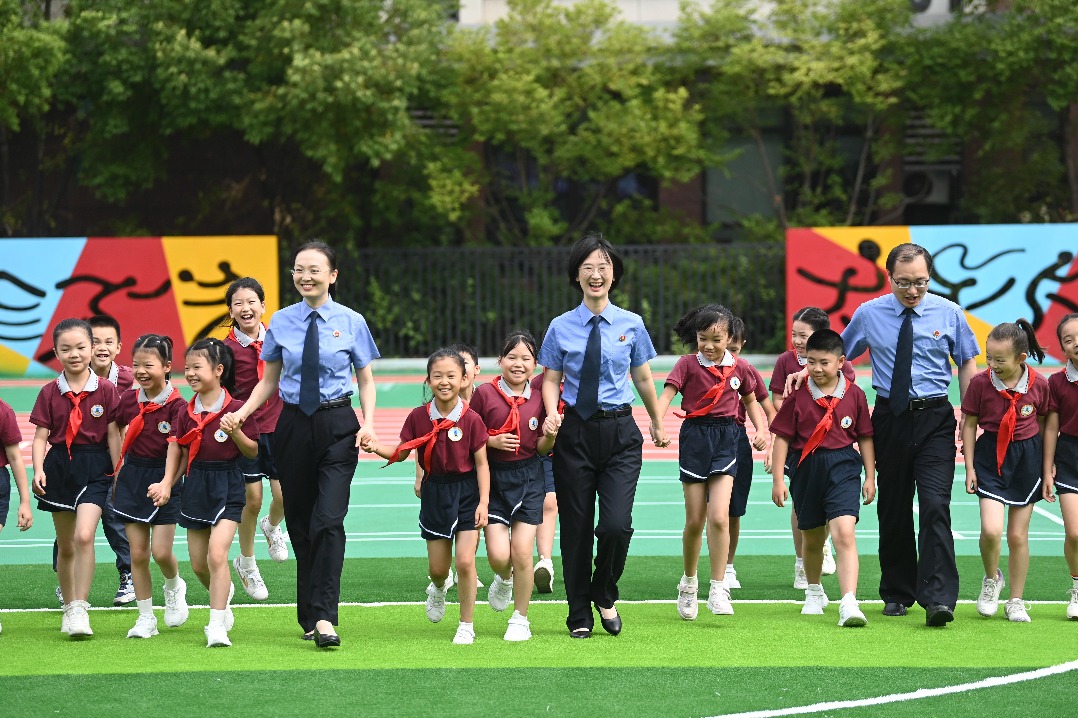Expanding educational horizons, online and offline


A learning community for students that allows them to explore disciplines outside their majors is evolving at Nankai University in Tianjin.
"We call it the Smart College. It's part of Nankai's new next-century-development strategy and falls under the Nankai 40 Regulations, which were set up to enhance teaching excellence through the creation of a faculty-student shared community for mutual growth through collaboration," said Cao Xuetao, a Chinese Academy of Engineering academician and president of the university.
Since 2019, Nankai's Smart College system has tried to provide students a cross-disciplinary environment through the dual "professional college + smart college" system, Cao said at the recently concluded online Times Higher Education Teaching Excellent Summit.
The pandemic has not hampered enthusiasm for the system, and students are able to select a major from 11 smart colleges-including those teaching literature, artificial intelligence and art-that offer classes online or offline and, based on existing pre-pandemic plans, offer overseas classes and activities as well, he said.
Overseas professors have already joined the program.
The tutorial system for the colleges is made up of tutoring teams composed of about 10 faculty members, including professors drawn from different disciplines and senior school counselors.
They mentor students from the perspectives of academic development and career planning, and the tutor-student ratio is often 1 to 10.
"It's a novel approach to extend teaching excellence after class, in which tutors and students work closely to enhance successful learning," Cao said.
To date, 1,020 students have taken part in the program. Due to the ongoing pandemic, online teaching is becoming increasingly popular, despite global controversy.
Jiang Jiaxuan, a student at Nankai's First Smart College who is majoring in tourism and service management, said that he used to be bored by the routine of "dormitory to laboratory", but now online courses are expanding his horizons.
He has chosen a Smart College course on the global history of fighting pandemics given by the head of the Nankai school.
Jiang said the course gives him strength and relief as he waits for the chance to return to university.
The First Smart College has also organized wine, food and tea salons for students and has run a poverty relief campaign for Zhuanglang, a county in underdeveloped Gansu province.
"I think graduates with a comprehensive educational background win on the career ladder, so greater learning opportunities with faculty members from outside benefit us," said Liu Xiang, who is also a student at the First Smart College.
In 2019, the Ministry of Education announced that Chinese universities will test new reforms in the building of smaller colleges and teacher-student shared communities in a bid to turn out better, more broadly educated graduates.
The earliest community of this kind was formed in the 12th century at Oxford University.
Leading universities in China have made great strides in building learning communities that extend beyond majors, and the pandemic has boosted innovation in online classes.
Nankai's move attracted attention at the Times Higher Education Teaching Excellent Summit, where some experts criticized online teaching for being "less engaging, interactive and stimulating".
Phil Baty, chief knowledge officer at the summit, lauded Nankai's moves.
"The pandemic forced us to move to remote, online teaching and actually improved teaching practices and gave us new experience and innovations that will ultimately improve the overall student experience," he said.
- Forum explores promotion of sustainable development through community education
- China pledges greater role in UN peacekeeping
- SCO forum calls for greater global collaboration on traditional medicine
- China's nuclear policy highly stable, continuous, predictable: spokesman
- Beijing condemns US remarks on Taiwan status
- Hong Kong's role in promoting TCM highlighted at forum





































